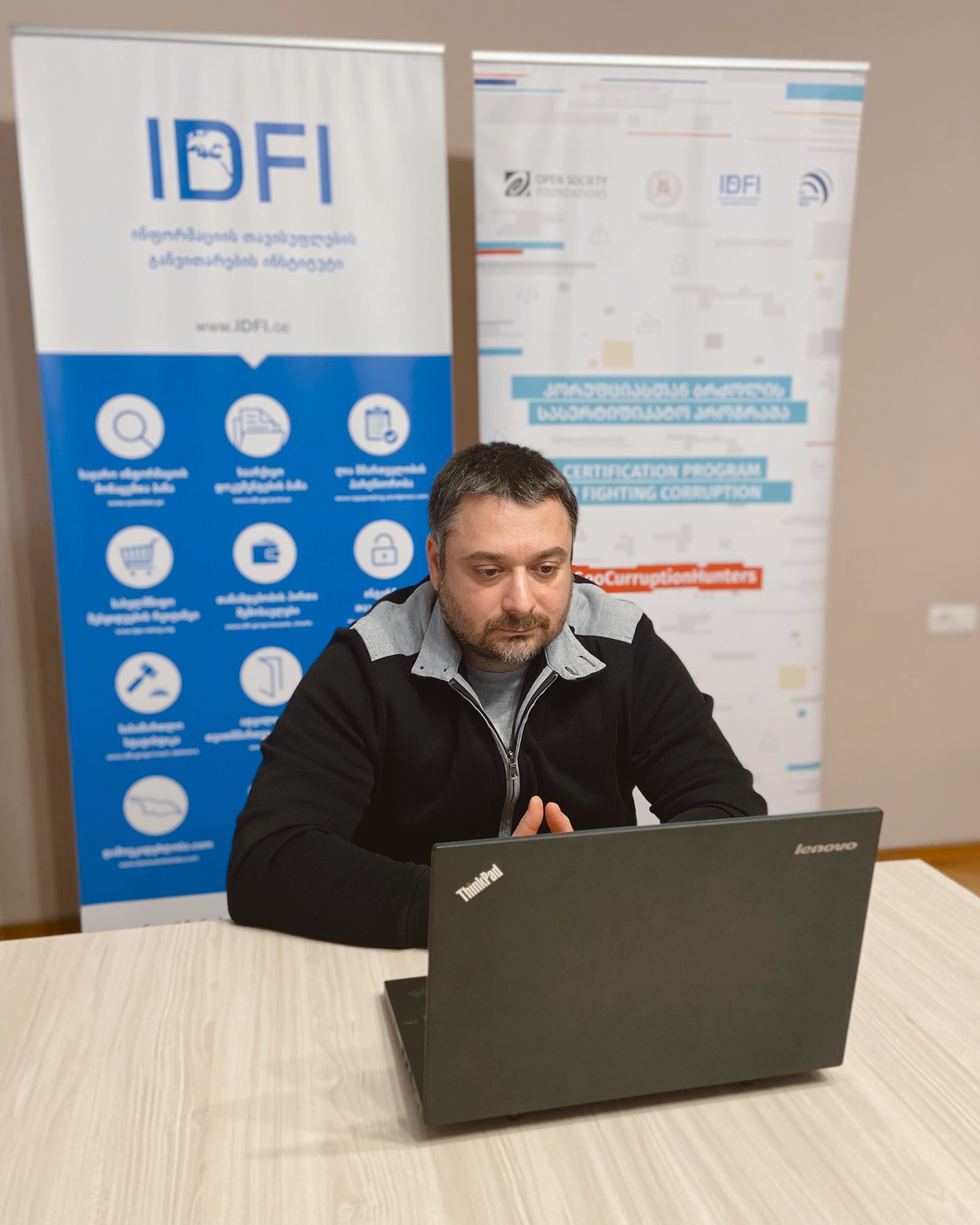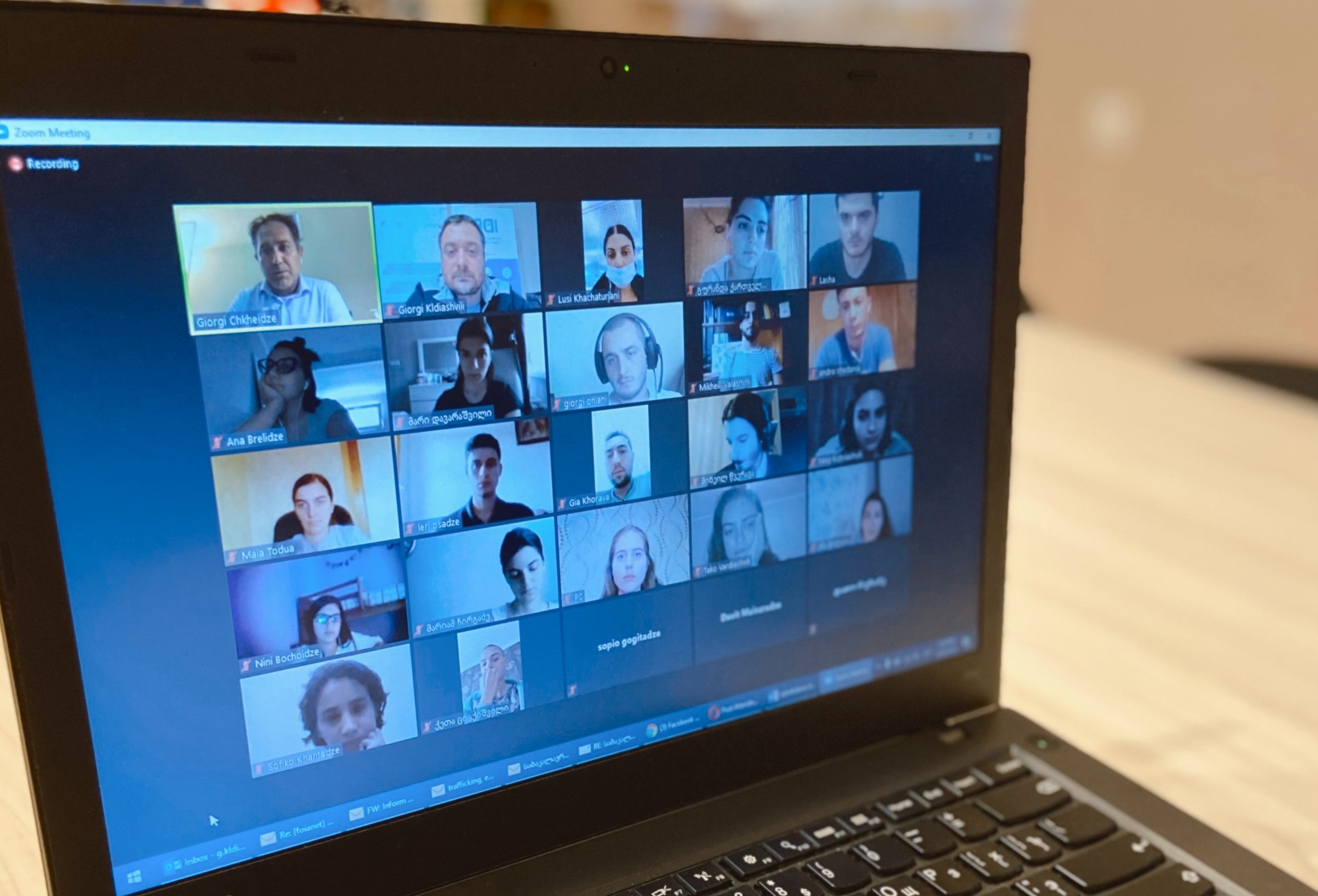


 On September 28, 2020, the second phase of the Educational Certification Program in Fighting Corruption was launched.
On September 28, 2020, the second phase of the Educational Certification Program in Fighting Corruption was launched.
The first course was held on the subject of Good Governance and Corruption that was lectured by the invited lecturer Giorgi Chkheidze.Giorgi Kldiashvili, the executive director of the Institute for Development of Freedom of Information (IDFI), addressed participants of the project.Giorgi outlined that it is of great importance to raise public awareness and commitment regarding the process of fighting against corruption. He mentioned that despite numerous significant measures carried out by the state, non-governmental sector, and civil society organizations (CSOs), corruption remains a big challenge in Georgia, and accordingly, it requires constant actions to stand up against it. Thus, creating and implementing an anti-corruption program as a platform, and network, is a good example of such actions.
Educational Certification Program in Fighting Corruption is implemented by the Institute for Development of Freedom of Information (IDFI) in cooperation with the Ilia State University.
Unlike the first year of the program, when the Certification Program in Fighting Corruption combined eight professional modules and participants of the course could receive certificates upon successful completion of the modules, this year, anti-corruption courses became part of the academic curriculum of the School of Arts and Sciences of the Ilia State University and together with certificates, participants will receive credits (ECTS) as well.
The updated format of the Certification Program in Fighting Corruption consists of two Bachelor’s and two Master’s degree courses. In particular, theBachelor’s degree coursesare:Good Governance and Corruption andPolitics and Corruption, and the Master degree courses are: Anti-Corruption Policy Management in Public and Private Institutions, andFight Against Corruption - International Actors, Anti-corruption Platforms.
 The undergraduate and graduate courses are based on the experience of implementation of vocational modules and aim to equip undergraduate and graduate students with the knowledge that will help them to manage corruption risks. The goal of transforming vocational modules into academic courses was to integrate them into the academic curriculum of the university.
The undergraduate and graduate courses are based on the experience of implementation of vocational modules and aim to equip undergraduate and graduate students with the knowledge that will help them to manage corruption risks. The goal of transforming vocational modules into academic courses was to integrate them into the academic curriculum of the university.
Participants in the Certification Program in Fighting Corruption have come a long way. Up to 300 applications were submitted. Finally, based on the selection of received applications andinterviews, 20 participants were selected for Bachelor’s degree courses, and 24 participants for Master’s degree courses. Moreover, the participants of the program are representatives of the state,the non-governmental and business sectors, as well as students of various universities.It should be outlined that additionally, the course will combine the number of students of Ilia State University who would register for the subjectswithin the framework of the Certification Program in Fighting Corruption andupon successful completion will receive ECTS credits. As a result, unlike the first year of the program, up to 100 participants will be able to take anti-corruption courses in one year.
Among other important topics, during the academic courses, participants will explore issues such as Public perception of corruption; The impact of corruption at the individual, social and organizational levels; Open Government Partnership and other international anti-corruption platforms; Gender and corruption; E-governance, decentralization, and accountability; Freedom of information and proactive disclosure; Public procurements; Corruption in the mining sector; The essence and types of political corruption; Participatory democracy; Public resources and voter bribery; Sports and corruption.
The Educational Certification Program in Fighting Corruption is financially supported by the Open Society Institute Budapest Foundation (OSI) and is co-financed by the Open Society Georgia Foundation (OSGF).